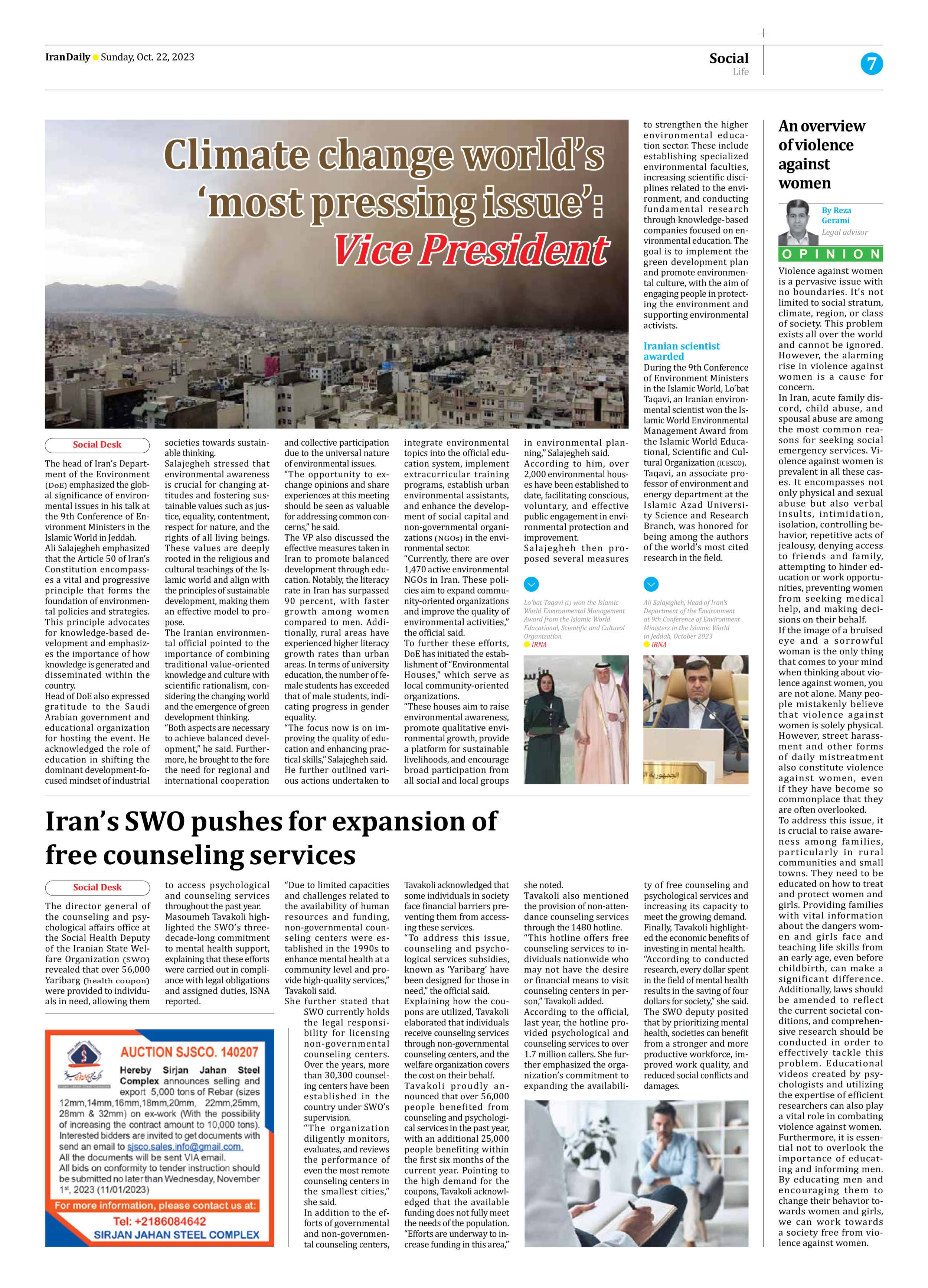
Iran’s SWO pushes for expansion of free counseling services
The director general of the counseling and psychological affairs office at the Social Health Deputy of the Iranian State Welfare Organization (SWO) revealed that over 56,000 Yaribarg (health coupon) were provided to individuals in need, allowing them to access psychological and counseling services throughout the past year.
Masoumeh Tavakoli highlighted the SWO’s three-decade-long commitment to mental health support, explaining that these efforts were carried out in compliance with legal obligations and assigned duties, ISNA reported.
“Due to limited capacities and challenges related to the availability of human resources and funding, non-governmental counseling centers were established in the 1990s to enhance mental health at a community level and provide high-quality services,” Tavakoli said.
She further stated that SWO currently holds the legal responsibility for licensing non-governmental counseling centers. Over the years, more than 30,300 counseling centers have been established in the country under SWO’s supervision.
“The organization diligently monitors, evaluates, and reviews the performance of even the most remote counseling centers in the smallest cities,” she said.
In addition to the efforts of governmental and non-governmental counseling centers, Tavakoli acknowledged that some individuals in society face financial barriers preventing them from accessing these services.
“To address this issue, counseling and psychological services subsidies, known as ‘Yaribarg’ have been designed for those in need,” the official said.
Explaining how the coupons are utilized, Tavakoli elaborated that individuals receive counseling services through non-governmental counseling centers, and the welfare organization covers the cost on their behalf.
Tavakoli proudly announced that over 56,000 people benefited from counseling and psychological services in the past year, with an additional 25,000 people benefiting within the first six months of the current year. Pointing to the high demand for the coupons, Tavakoli acknowledged that the available funding does not fully meet the needs of the population.
“Efforts are underway to increase funding in this area,” she noted.
Tavakoli also mentioned the provision of non-attendance counseling services through the 1480 hotline.
“This hotline offers free counseling services to individuals nationwide who may not have the desire or financial means to visit counseling centers in person,” Tavakoli added.
According to the official, last year, the hotline provided psychological and counseling services to over 1.7 million callers. She further emphasized the organization’s commitment to expanding the availability of free counseling and psychological services and increasing its capacity to meet the growing demand.
Finally, Tavakoli highlighted the economic benefits of investing in mental health.
“According to conducted research, every dollar spent in the field of mental health results in the saving of four dollars for society,” she said.
The SWO deputy posited that by prioritizing mental health, societies can benefit from a stronger and more productive workforce, improved work quality, and reduced social conflicts and damages.







